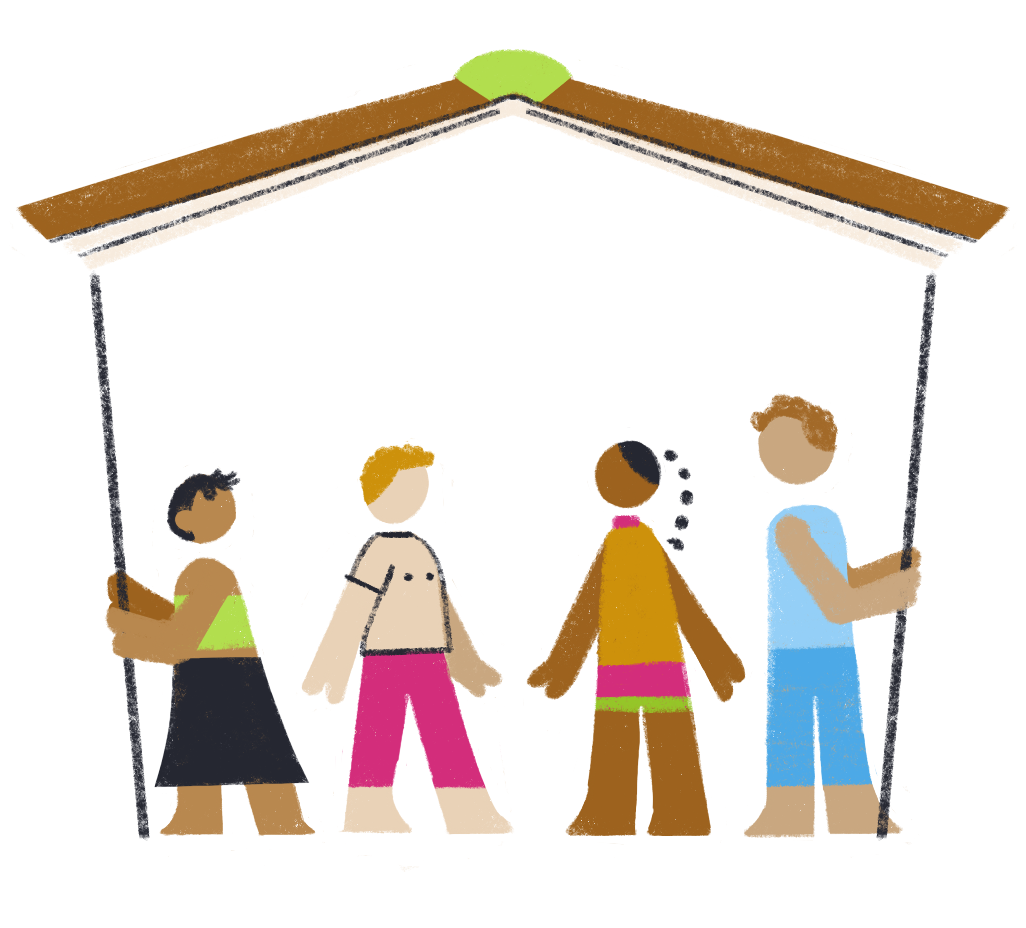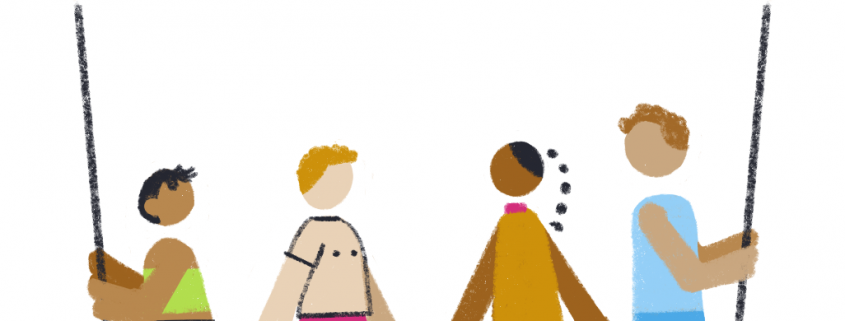Website raises funds for students in need

For students in undocumented or mixed-status families like Alexia Sambrano, a rising junior majoring in neuroscience and cognitive science, the coronavirus pandemic has caused struggles most citizens don’t face — like not qualifying for the federal Coronavirus Aid, Relief, and Economic Security Act direct payments and, in Sambrano’s case, being the sole breadwinner for her household.
“My parents are undocumented. My mom doesn’t work, and my dad lost his job — he was laid off when everything happened,” Sambrano said. “I was the only one, within the first month [after USC’s transition to online classes who] was the only sole provider through my part-time, minimum-wage student worker position.”
To help others in similar situations, students in Emerson Whitney’s “Contemporary Issues in LGBTQ Studies” course, including Sambrano, created the USC Care Collective, a website and fundraiser designed to provide resources to marginalized communities on campus. Since its launch via social media and advertising on student assemblies’ newsletters April 23, a total of $840 has been distributed to more than 20 students who applied to the fund.
“It’s been super nice and really encouraging to see so many people interact with our posts and talk about [the Care Collective],” Sambrano said. “Seeing the impact that it’s actually having is kind of mind-blowing — not scary, but it’s shocking because a lot of people are actually paying attention to us.”
Whitney’s course usually requires a final project that focuses on connecting LGBTQ issues to problems faced by other marginalized communities. Following the transition to remote learning, Whitney made the assignment optional. Sambrano, who is the Care Collective’s lead creator, and Seth Mitchell, a graduate student studying occupational therapy, originally planned to create a website that would provide information and educate students on diversity and inclusion resources available on campus for their final project. Their initial project evolved into the Care Collective, which is similarly dedicated to student solidarity but focuses more on providing identity-specific financial aid.
Inspired by a course reading by Leah Lakshmi Piepzna-Samarasinha titled “Care Work: Dreaming Disability Justice,” a book about increasing access to resources for marginalized communities, Sambrano, Mitchell and Lupe Mota, another student in the course who was not a part of Mitchell and Sambrano’s original idea, decided to highlight the book’s concept of a care web in their final project. A care web, as coined by the reading, is a system of mutual aid where communities, especially those that are marginalized, come together and help one other by providing resources to each other, rather than relying on top-down assistance. Sambrano said she and her classmates felt the need to emphasize the care web aspect of the intiative that serves marginalized communities, such as undocumented and international students, since many USC resources are not openly available to them.
“I wanted to emphasize it and the class wanted to emphasize it as well, that it was specifically for [Black and indigenous individuals, people of color], low-income, undocumented, queer and trans students, just because these are the communities that are being affected the most by COVID, and we don’t see a lot of that coming from USC as a whole,” Sambrano said.

To apply to the Care Collective, students complete an online form that requires applicants to provide a USC email address and list which marginalized communities they identify with. Besides access to funds, the website also includes links to various identity-specific resources, including the Undocumented Trojans Online Resource Center and Student Equity and Inclusion Programs. A radical reading list, spearheaded by Mota, a 2020 graduate, is also available on the website and features works that focus on communities and topics often not discussed in academia, such as anarchic studies and indigenous histories. Mota, a researcher for the Department of Art History and a Mellon Mays undergraduate research fellow who studied faculty diversity in colleges and universities, said she was initially unsure what to contribute to the collective but ultimately decided to incorporate her knowledge from past academic research.
“I spent hours trying to figure out ways in which I could bring knowledge … that I feel like most marginalized communities would access and could benefit from accessing,” Mota said. “I think what was really special about this collective was that we all took up certain roles that we could, in our own capacity, take care of.”
With links to small businesses run by USC students, as well as a page accepting direct donations to provide financial relief to students in need of assistance, the collective initially planned on collecting donations through their website. However, once the website had been running for two weeks, Sambrano found most of the website’s traffic went toward the identity-specific resources and radical reading list rather than the small businesses and student direct payment pages. This prompted Sambrano and Mitchell to launch a GoFundMe campaign to provide aid for students in need who are not qualified to receive financial relief through the coronavirus relief bill, such as undocumented individuals.
Under the Higher Education Emergency Relief Fund, USC received $19.3 million to provide financial assistance to students facing dire circumstances during the pandemic. However, these funds are not available to DACA or international students, those who do not achieve satisfactory academic progress and other students, such as those with prior drug convictions, who do not qualify for federal financial aid. The Care Collective aims to redress this gap.
“What we were really concerned about was finances for those in need, with uncertainty around evictions and rent freezes, as well as regular everyday needs, like groceries,” Mitchell said. “We were concerned for our community and those students who traditionally get left behind by administration.”
Honorio Antonio, a rising junior majoring in psychology, was one of the students who received funds from the GoFundMe page. Using his work-study money to pay his internet bill to be able to take online classes, Antonio said the Care Collective supplied not only compensation for his lost funds but affirmation that the group was looking out for marginalized students.
“What was given to me just came at the perfect time,” Antonio said. “In a way, it’s providing us with that reassurance that everything’s going to be OK more than the actual physical value of the money that’s being given.”
With uncertainty about whether classes will resume in person in the fall, programming departments such as the Queer & Ally Student Assembly have adjusted to promoting their resources and preparing to hold events online. QuASA assistant director Ren Ye said the Care Collective has proven helpful in highlighting QuASA, as well as other LGBTQ resources on campus, to students who may need them.
“It’s hard to advocate for a group that’s underrepresented, and the initiative that the [USC Care Collective] is providing is really helpful,” Ye said. “[QuASA has historically had] to do a lot of tabling fundraising events in order to kind of get traction or get our name out to students who might not necessarily know that there are LGBT resources that are friendly … Having something like this really helps us bring attention to this stuff.”
The Care Collective founders hope the initiative will remain active and available following the pandemic. Sambrano said she aims to work with Whitney to incorporate the Care Collective into his future classes so students can continue adding up-to-date resources and publicizing the website. Sharing resources with students in need is important now more than ever due to rapidly changing circumstances, Sambrano and Mota said.
“We don’t know what the state of the world is, even in a month or two,” Mota said. “I hope that people see [the Care Collective], and they want to create their own or donate to this one or another one that they want to give back to.”

